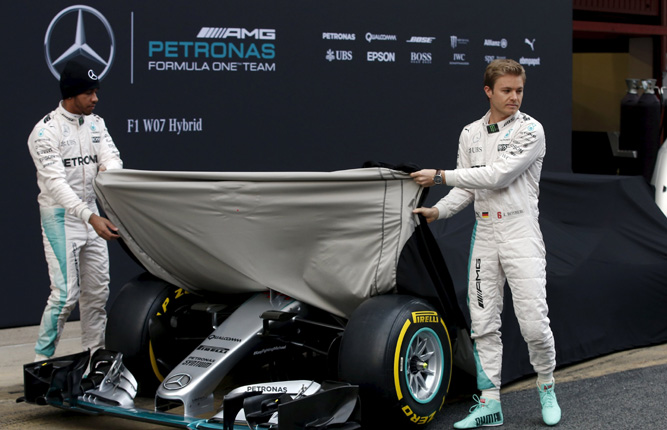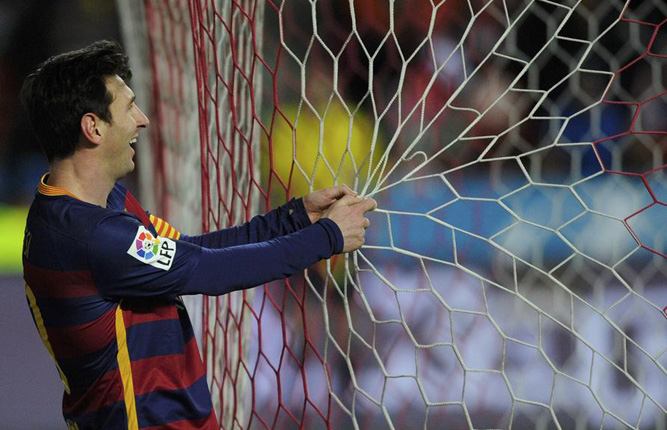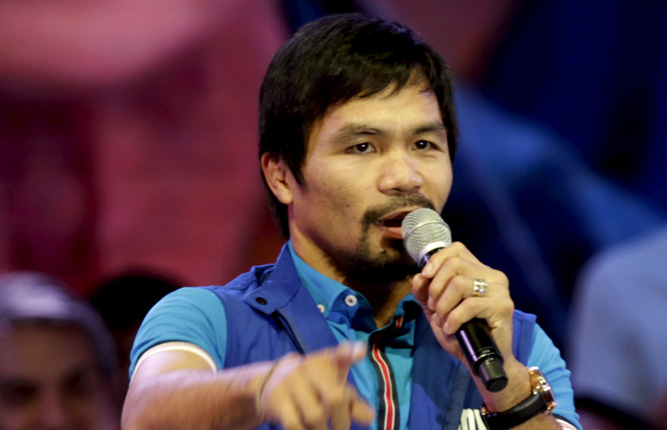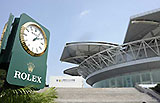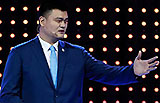FIFA-appointed committee questions Guatemala soccer TV contracts-sources
(Agencies) Updated: 2016-02-24 09:47GUATEMALA CITY - An audit by a committee appointed by FIFA, soccer's global governing body, has concluded that broadcasting contracts between Guatemala's soccer federation and Mexican media magnate Angel Gonzalez were awarded below market value, say sources with knowledge of the report.
The committee is running the Guatemalan soccer federation (Fedefut Guatemala) after the federation's president and another of its top officials were arrested on bribery-related charges as part of wide-ranging U.S. probe into global soccer corruption. It presented the findings of its audit to Primo Corvaro, FIFA's head of member associations, earlier this month in Guatemala.
A source on the committee said the contracts, which have been reviewed by Reuters, appeared to be "excessively unfavorable" to Fedefut, and fell short of international standards because the price was so low and given the deals were reached after exclusive negotiations with Gonzalez.
The so-called "normalization committee" has also handed the audit to the Guatemalan Comptroller's office, which is a government accounts watchdog, and recommended to FIFA's Corvaro that Fedefut's statutes be changed to assure fair and transparent tenders for future TV and sponsorship contracts.
The Comptroller's office did not respond to a request for comment.
The broadcasting contracts were signed by former Fedefut president Brayan Jimenez, who is awaiting extradition to the United States on corruption charges related to the sale of broadcast rights to another company.
Jimenez's lawyer Francisco Garcia said the committee was artificially making an issue out of the contracts awarded to Gonzalez, adding that Fedefut's contracts for broadcasting rights had been awarded without a tender process "for many years," including before Jimenez became president.
"This is not the first time that the contracts were not tendered, this has been happening since administrations prior to Brayan Jimenez," Garcia said.
Executives at Gonzalez's Miami-based holding company Albavision, including one directly involved in the contracts, did not respond to telephone and email messages requesting comment.
A FIFA spokesman said the world body had held working sessions with the committee and stakeholders of Fedefut, but declined further comment.
PANAMA GOT MUCH MORE
Fedefut sold the domestic television rights for all games by the national soccer squad exclusively to two networks belonging to Albavision, for an average of up to $83,000 annually between 2014 and 2018, according to documents reviewed by Reuters.
The deal, which also gave Fedefut the right to one minute of airtime a day and benefits for sponsors, was cheaper than the $400,000 annual fee nearby Panama's federation says it was paid for similar rights by Traffic Sports USA, a Miami-based company which has pleaded guilty to wire fraud conspiracy as part of the U.S. corruption probe.
Soccer-mad Guatemala has a larger audience, with its population of 15 million compared with 4 million people in Panama. Other Central American soccer federations did not respond to requests for information about their broadcast deals.
FIFA was thrown into turmoil last year when U.S. prosecutors announced their sweeping probe of corruption in the sport, including how the organization and its affiliates marketed and sold TV and radio broadcast rights to soccer tournaments. Prosecutors have charged 41 people and entities, mostly soccer bosses from throughout the Americas, and identified $200 million in bribes and kickback schemes tied to marketing of major tournaments and matches.
Among those charged was Jimenez and former Fedefut secretary general Hector Trujillo for allegedly accepting bribe payments from Media World, an affiliate of Spanish media company Imagina Group for media and marketing rights to World Cup qualifier matches in 2018 and 2022. Another Guatemalan soccer official, former FIFA executive committee member Rafael Salguero, also faces bribery-related charges in the case.
The U.S. is seeking to extradite Jimenez from Guatemala. Trujillo, who was a judge on the Constitutional Court of Guatemala, was arrested while on board a Disney cruise ship in Florida in December. He pleaded innocent to the charges in a Brooklyn court last month. Salguero's whereabouts could not immediately be ascertained and a spokeswoman for U.S. prosecutors declined to comment.
NEW MODEL
The Media World Sports contracts that are part of the U.S. case against the three Guatemalan soccer officials are separate from the contracts signed with Gonzalez. Media World Sports does not belong to Gonzalez.
In the audit report, the committee requests expert assistance from FIFA to reform Fedefut's statutes.
"What we are trying to do is make more transparent the process of sponsorship, of transmission rights and of any other activity that generates funds, according to the new model of FIFA statutes," said Adela Camacho de Torrebiarte, who heads the committee.
Camacho did not comment on the details of the report to FIFA.
Gonzalez's companies dominate the TV broadcast industry in some of the countries he works in, notably Guatemala, where he controls the only four national free TV stations, putting him in a very strong position to win broadcasting rights to any event.
According to the Albavision website, the holding company owns 45 TV stations in 16 Latin American and Caribbean countries.
The sources say that as well as the favorable terms of the broadcasting contracts, the committee expressed concern about the influence Gonzalez had over Guatemala's national soccer side through his control of sponsorship deals and coaches.
Reuters reported last month that the committee also filed a complaint with the Guatemalan prosecutor's office about the disappearance of $1 million of FIFA money from Fedefut.
